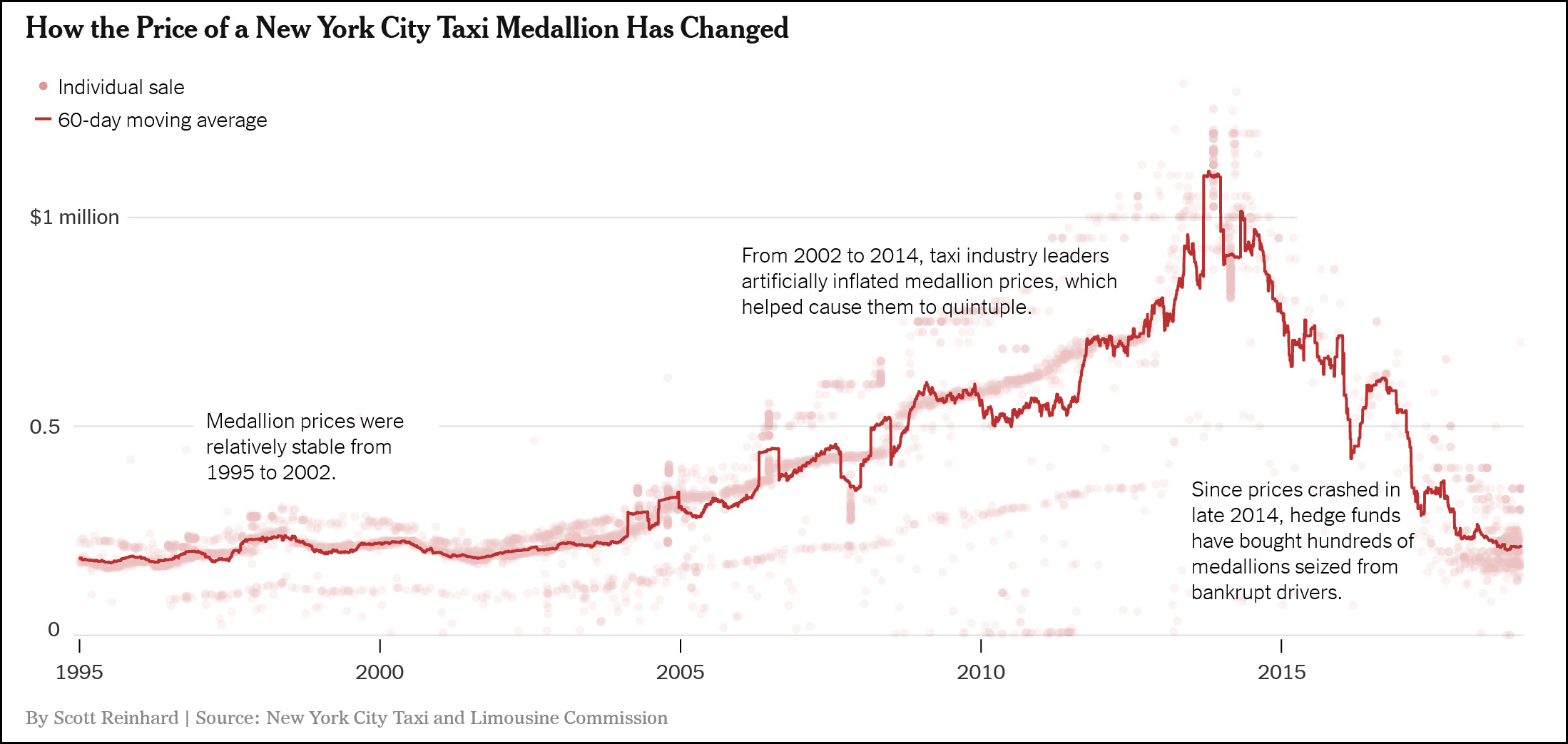The New York Times has a good piece today about the price of taxi medallions, which act as permission to operate a yellow cab in the city. Here’s what prices look like over the past few decades:

The crash starting in 2014 is almost universally described as the “Uber effect,” and it certainly makes sense that the growth of Uber would make the value of a yellow cab decline. But if you look more closely, the real question is different: why did prices for medallions go up in the first place? Between 2002 and 2014 the population of New York City didn’t grow much; the number of medallions didn’t change appreciably; and the average income from driving a cab didn’t go up. So why would the price of a medallion quintuple? According to the Times, the answer is corruption:¹
Much of the devastation can be traced to a handful of powerful industry leaders who steadily and artificially drove up the price of taxi medallions, creating a bubble that eventually burst. Over more than a decade, they channeled thousands of drivers into reckless loans and extracted hundreds of millions of dollars before the market collapsed.
….The practices were strikingly similar to those behind the housing market crash that led to the 2008 global economic meltdown: Banks and loosely regulated private lenders wrote risky loans and encouraged frequent refinancing; drivers took on debt they could not afford, under terms they often did not understand….Some industry leaders fed the frenzy by purposefully overpaying for medallions in order to inflate prices, The Times found.
….As in the housing crash, government officials ignored warning signs and exempted lenders from regulations. The city Taxi and Limousine Commission went the furthest of all, turning into a cheerleader for medallion sales. It was tasked with regulating the industry, but as prices skyrocketed, it sold new medallions and began declaring they were “better than the stock market.”…At the market’s height, medallion buyers were typically earning about $5,000 a month and paying about $4,500 to their loans, according to an analysis by The Times of city data and loan documents.
The victims of this scam were largely low-income, of course, and also largely immigrants. They were sold on medallions as an entry to the middle class: hard work, sure, but it would pay off. After all, medallions always increased in value.
But that was never true, something which had nothing to do with Uber. It’s true that after Uber and Lyft entered the New York market the average income of taxi drivers declined. By about 10 percent. That’s a lot for a low-income immigrant family, but obviously not enough to account for a price drop for medallions from $1 million back to $200,000. Mostly that happened because lenders and fleet owners engineered a massive, artificial bubble that was never sustainable.
In the end, then, we have an old story: basically a Ponzi scheme enabled by lots of money sloshing around and a lack of regulation from the people who should have been protecting the victims. The story about Uber and Lyft is mostly just a fairy tale invented to hide what really happened.
¹Corruption comes in all forms and sizes. This scam was small and local, but otherwise it was much the same as the housing bubble that wrecked the global economy in 2008. That’s why it’s important to root it out, no matter where it happens. If you want to donate to our Corruption Project, just click here.














